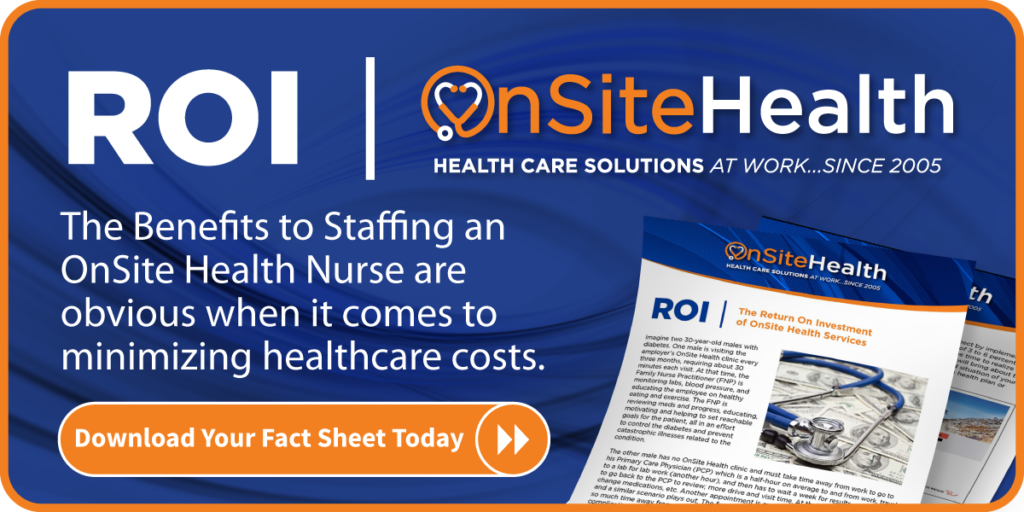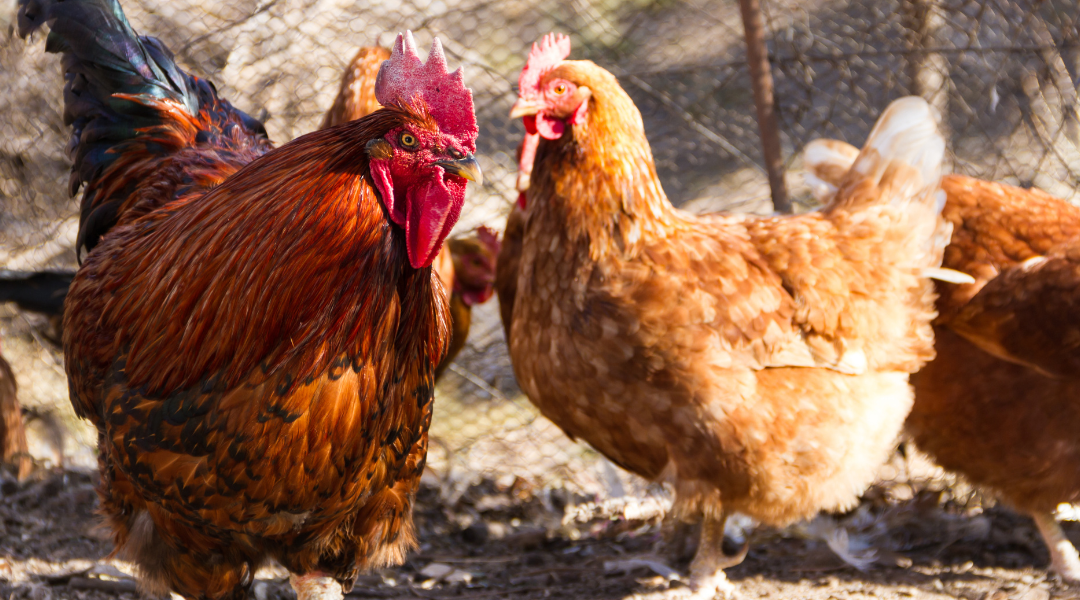The avian flu outbreak continues across the US; since early 2022, more than 49 million birds in the 46 states have either died or have been culled because of exposure to infected birds. It’s important that people take preventative measures to prevent the spread of the virus to themselves. Let’s look at what the avian flu is, what the symptoms are, how it spreads, and what preventative measures you and your employees can take.
Want to Learn the Facts about Onsite Clinics? Click Here
What is the Avian Flu Outbreak?
Avian flu, also known as bird flu, is a viral infection that can infect poultry such as chickens, turkeys, pheasants, quail, domestic ducks, and geese. The virus spreads among birds through their saliva, nasal secretions, feces, and feed. H5N1 is the most common form of bird flu that can easily affect humans and other animals that come in contact with a carrier. H5N1 is a subtype of the Influenza-A virus. H5N1 infection in people has been associated with close contact with infected live or dead birds or H5N1-contaminated environments.
At this time of writing, there are no signs of the virus spreading from human to human, only bird to human, however this may change. If a human does contract this disease, it can be deadly, since the mortality rate for flu is greater than 50%. There has been a whole lot of news in recent weeks about people looking at raising chickens to avoid the high cost of eggs, but as you can see, that can be a deadly endeavor.
The signs and symptoms of H5N1 in people may vary. You may experience typical flu-like symptoms including:
- diarrhea
- cough
- sore throat
- respiratory difficulties or chest pain
- fever over 100.4°F
- headaches
- muscle aches
- sore throat
- nausea or vomiting
- runny rose
- malaise
Household pets including cats, dogs, pigs, and ferrets may also contract the virus. The symptoms to look out for include a fever of 104°F or higher, breathing problems, cough, and runny nose with a large amount of clear mucus.
How to Prevent the Avian Flu?
H5N1 typically occurs naturally within the wild, but because domesticated poultry tend to live together in close quarters, that environment is conducive to spreading the virus quickly. This disease can be transmitted to humans through contact with infected bird feces, nasal secretions, or secretions from the mouth or eyes.
If you consume properly cooked poultry or eggs from infected birds, then the bird flu won’t transmit. Experts advise that eggs should never be served runny, and meat should be cooked at an internal temperature of 165°F. According to the CDC, whenever possible, people should avoid direct contact with wild birds and observe them only from a distance, avoid unprotected contact with domestic birds that look sick or have died, and avoid contact with surfaces that may be contaminated.
People who have jobs that require them to be in contact with birds should take proper precautions. Use protective equipment like gloves, N95 respirator masks, and eye protection. Avoid touching your mouth, nose, or eyes after contact with birds, and wash your hands with soap and water.
Why is Avian Flu Dangerous?
Some potential complications that can be associated with H5N1 are sepsis, pneumonia, organ failure, and acute respiratory distress, which all may be life-threatening. Contact a healthcare provider if you or your employee have flu symptoms within 10 days (about 1 and a half weeks) of handling birds or traveling to areas with a known avian flu outbreak.
Why Your Business Should Implement an On-site Nurse
The importance of having a nurse on-site at companies, especially those involved in poultry and related industries has become more evident. Here are the enhanced and critical reasons for implementing such proactive health measures:
- Monitoring for Symptoms Related to Avian Flu: On-site nurses are pivotal in the early detection of flu symptoms, which is crucial for preventing potential outbreaks among staff. With the avian flu H5N1 cases reported in humans and animals globally, early symptom detection could significantly mitigate risks.
- Enforcing Good Hygiene Practices Among Staff: The spread of avian flu can be reduced through stringent hygiene practices. Nurses enforce these measures, adapting strategies from global health recommendations to local contexts.
- Collaboration with EHS Managers for Policy Development: Nurses work closely with Environmental Health and Safety (EHS) Managers to craft and adjust health policies in response to the evolving understanding of avian flu, ensuring practices adhere to WHO, CDC, and OSHA guidelines.
- Stress Reduction Among Staff: Knowing there’s a health professional available onsite fosters a sense of security among employees. The stress of potential exposure to diseases like avian flu can affect productivity and morale, which nurses can alleviate.
- Liaison with Health Departments and Regulatory Bodies: On-site nurses can promptly report health incidents, liaising with health departments and the FDA, providing a swift response to any arising issues related to avian flu outbreaks.
- Resource for Communicating Health Recommendations: With updates from the CDC, WHO, and FDA, nurses serve as a reliable source for the latest health recommendations, ensuring the workforce is well-informed about protective measures against avian flu.
- Promoting Health Within the Community: The presence of on-site nurses demonstrates to the community and consumers that the company prioritizes health, particularly in preventing the spread of diseases like avian flu.
- Cost-Effectiveness: Having a nurse on-site can be more cost-effective than sending employees to clinics for health assessments. Immediate first aid and appropriate referrals when necessary can reduce healthcare costs and downtime.
- Recruitment and Retention: In the current climate, potential and current employees may have concerns about working in industries vulnerable to avian flu. On-site healthcare support can be a strong point in recruitment and employee retention.
- Return to Work (RTW) Coordination: Nurses act as the HIPAA-compliant communicator between employees and their physicians to ensure safe and timely RTW processes, including managing any required restrictions or adaptations.
Contact OnSite Health
In the face of an avian flu outbreak, OnSite Health stands ready to safeguard the continuity and safety of your business operations. Recognizing the critical need for a vigilant and robust response to avian flu threats, our dedicated team offers unmatched support and expertise to shield your workforce and maintain your operational integrity. OnSite Health boasts a roster of on-site nurses—each licensed, trained, and experienced in managing health crises, including avian flu scenarios. Learn more about what we can do for your organization.

